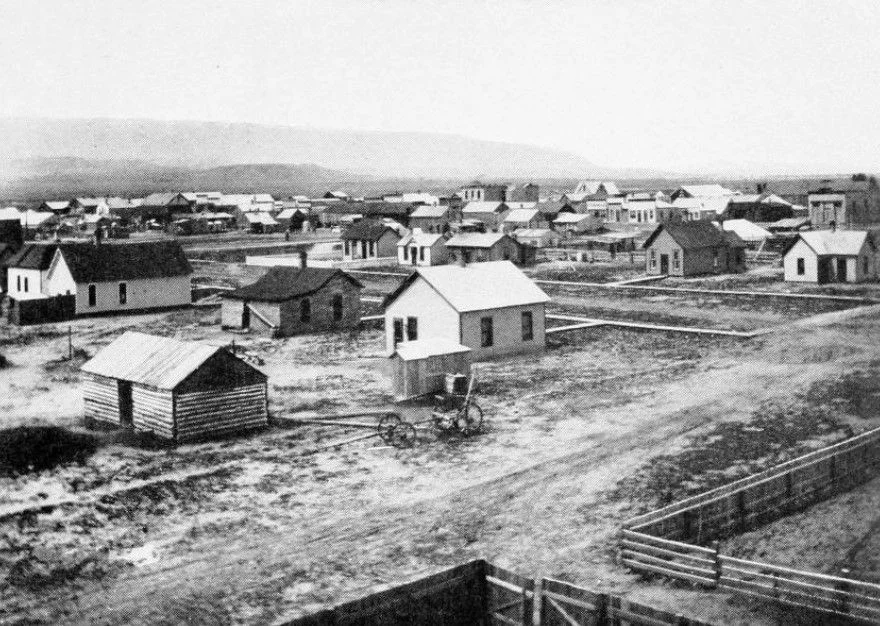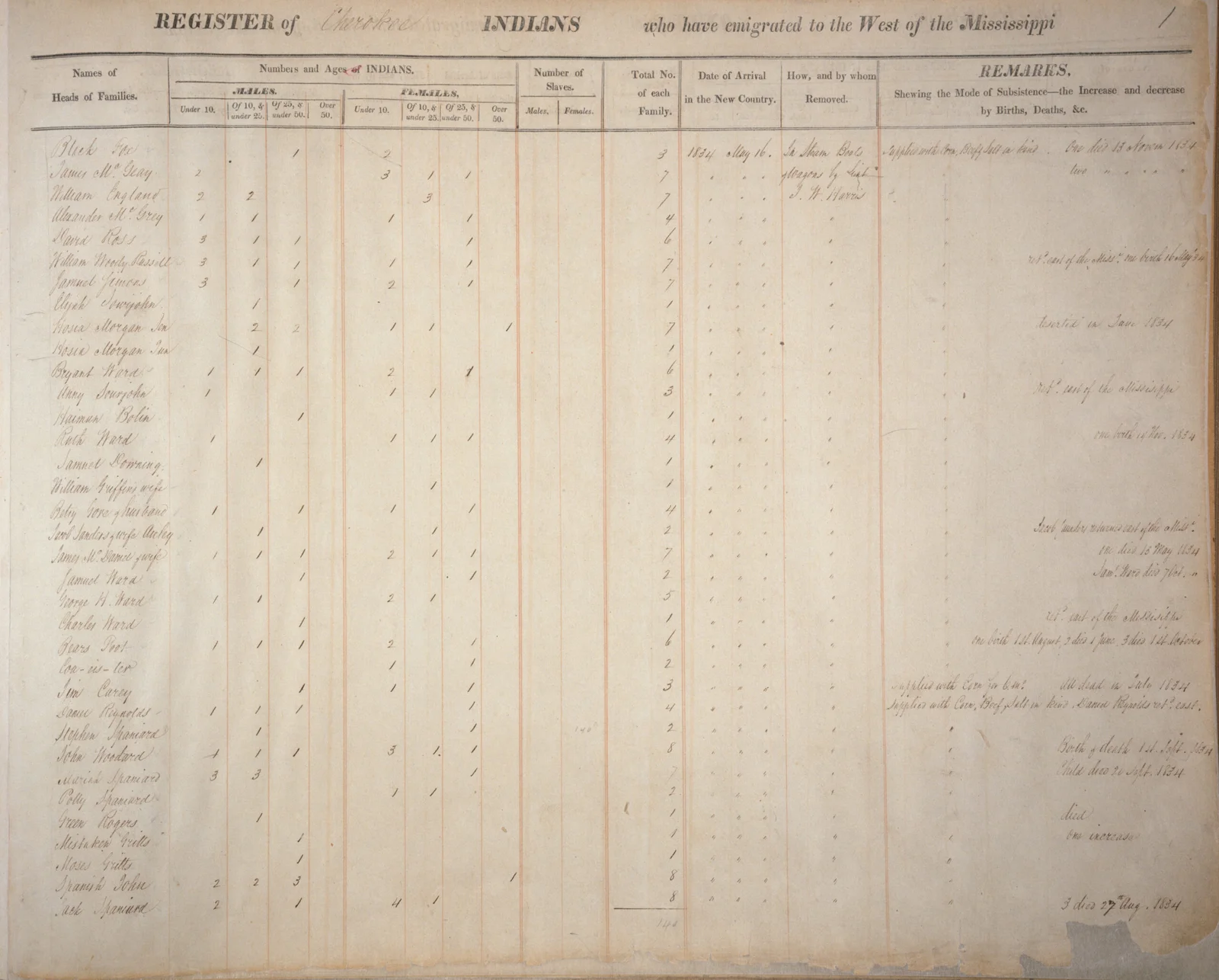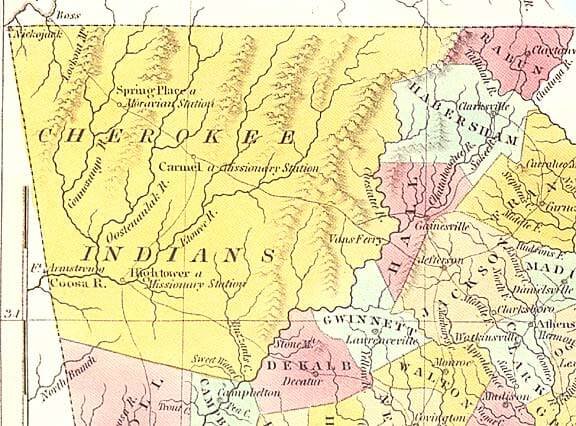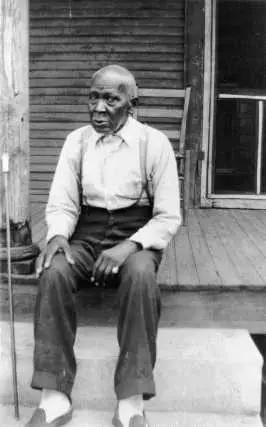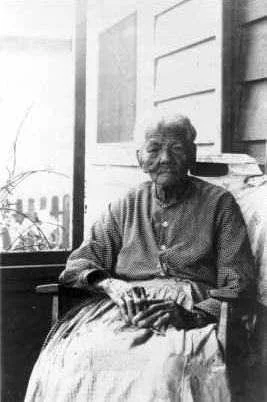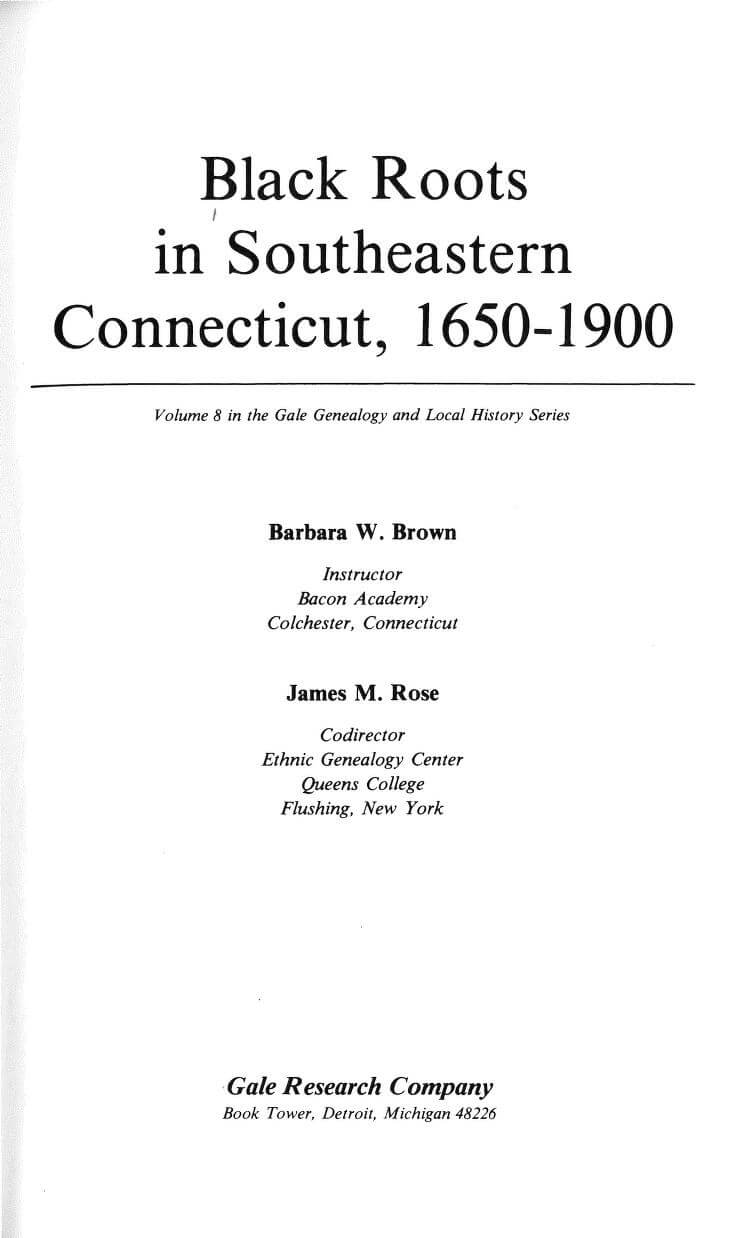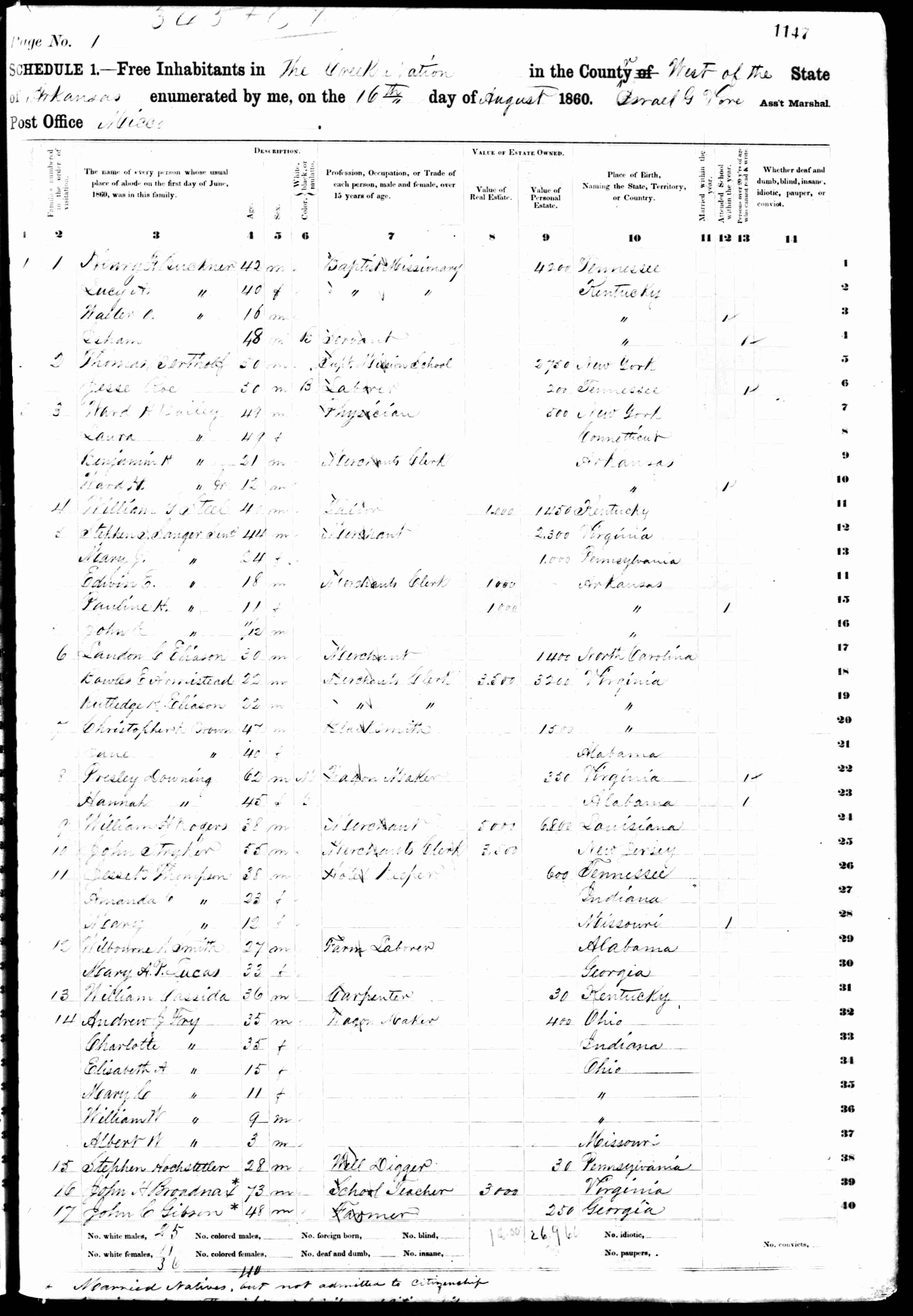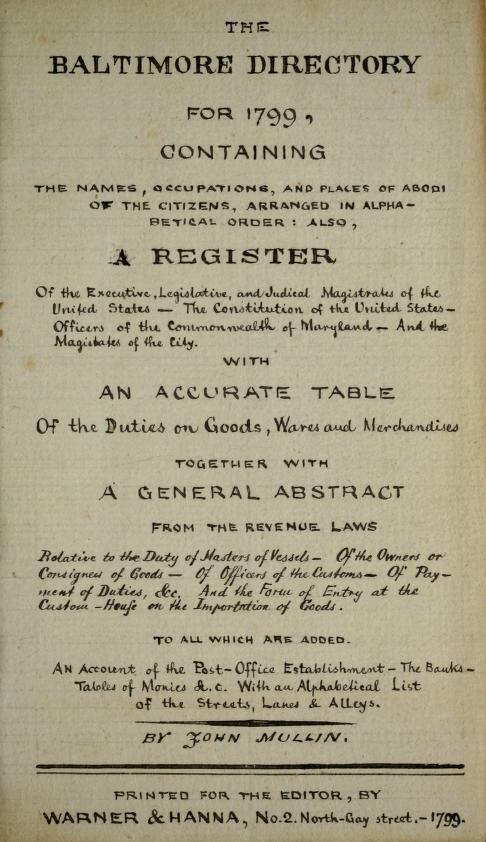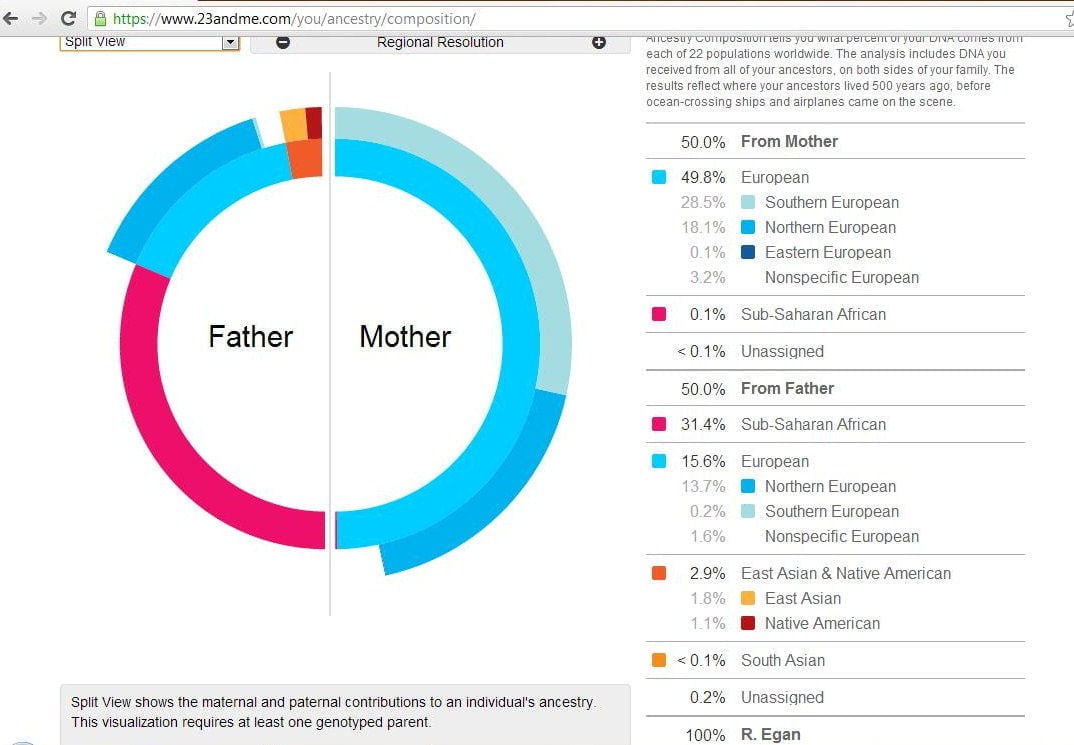African American Genealogy records are much more difficult to find due to the scant nature of record keeping for blacks prior to the Civil War. We have modeled this section much like we have for Native Americans, whose research can also be hampered by the available records. The links below provide an accurate reflection of what African American genealogy is available online.
Conducting successful African American genealogical research can be a challenging adventure. In recent years, the challenge has been lessened and the adventure heightened by the growing body of publications relating to this ethnic group. Special-interest groups and genealogical societies nationwide are publishing key guides, new bibliographies, and important how-to books. Before delving into published sources, however, it is always important to pause long enough to organize one’s own personal papers and review standard research methodology.
Searching for African American families involves two distinct research approaches. These approaches correspond to the distinct change in the legal status of African Americans in the United States before and after the Civil War. Genealogical techniques used to track slave families before the war are necessarily quite different than those used for white or free African Americans; however, research conducted on African Americans after the war usually involves the same types of records as those used for whites.
African American Genealogy Records by State
- Alabama
- Arkansas
- Delaware
- Florida
- Georgia
- Illinois
- Indiana
- Kansas
- Kentucky
- Louisiana
- Maine
- Maryland
- Michigan
- Mississippi
- Missouri
- New Hampshire
- New Jersey
- New York
- North Carolina
- Ohio
- Oklahoma
- Pennsylvania
- Rhode Island
- South Carolina
- Tennessee
- Texas
- Vermont
- Virginia
- West Virginia
Please note some states are omitted due to lack of online information
African American Cemetery Records by State
Following states have a large online collection of African American Cemeteries
African American Census Records by State
Following states have a large online collection of African American Census Records
Slave Owners by State
Following states have a large online listing for Slave owners
Online African American Books
- Slave Narrative of Lunsford Lane
Slave Narrative of Lunsford Lane – Embracing an account of his early life, the redemption by purchase of himself and family from slavery, and his banishment from the place of his birth for the crime of wearing a colored skin. - The Fugitive Blacksmith
The Fugitive Blacksmith: Events in the history of James W. C. Pennington, Pastor of a Presbyterian Church, New York, formerly a slave in the State of Maryland, United States. The principal portion of the ‘Tract,’ as Mr. Pennington modestly styles his book, consists of an autobiography of his early life as a slave, and of his escape from bondage, and final settlement in New York as a Presbyterian Minister. His adventures and hair breadth escapes invest the narrative with startling interest, and excite the deepest sympathies of the reader. - History of Liberia
This paper claims to be scarcely more than a brief sketch. It is an abridgment of a History of Liberia in much greater detail, presented as a dissertation for the degree of Doctor of Philosophy at the Johns Hopkins University. - History of Black Soldiers in the Spanish American War
History of Black Soldiers in the Spanish American War: The troops of the 9th and 10th Cavalry, and the 24th and 25th Infantry served with distinction on the battlefields of Las Guasimas, El Caney, and San Juan Hill. In four months of fighting the Spanish under these adverse conditions, the Buffalo Soldiers were described as “most gallant and soldierly.” This is their story - Great Riots of New York 1712-1873
A History of all the Great Riots of New York from 1712 to 1873. Includes histories of the Black Riots, Draft Riots, Flour Riot, Stamp-Act Riot, Abolition Riots, Dead Rabbits’ Riot, Astor Place Riots, Spring Election Riots, Doctors’ Riot, and the Orange Riots. - A Century of Black Migration
A century of Black migration (or the Great Migration) details how Blacks in the United States have struggled under adverse circumstances to flee from the bondage of the South in quest of lands offering Freedom and opportunity. - The Fugitive Slave Law
The Fugitive Slave Law was enacted by Congress in September, 1850. It declared that all runaway slaves were, upon capture, to be returned to their masters. In effect, encouraging local officials to “kidnap” suspected slaves, detain them, and transport them back to Southern States and their “owners”. This collection provides a synopsis of the act itself, and specific, named examples of it’s effect on Blacks living in the North.
Newest Black Genealogy
Our newest posts on black genealogy
-
1832 Cherokee Muster Roll
This Muster Roll details Cherokee Indians who migrated west of the Mississippi River under B. F. Curry’s supervision. It includes payments made by Capt. Vashon, outlining the number of individuals and slaves receiving subsistence. Each Indian received $32.50, with payments occurring in April or May 1832. The document lists heads of families and their respective counts of males, females, and slaves, totaling 231 men, 193 women, and 157 slaves, with a cumulative total of 561 individuals.
-
Cherokee Muster Rolls, 1835 – 1838
The Cherokee Muster Rolls of 1835-1838 document the forced relocation of the Cherokee people during the Trail of Tears. These rolls list families who were moved west, including those who left voluntarily, were rounded up by military forces, or migrated under Cherokee leadership. They offer crucial genealogical information for descendants of Cherokee individuals from the southeastern U.S., particularly those connected to the Cherokee Nation and the Eastern Band. These records, like the 1835 Henderson Roll and various muster rolls, are important for researchers tracking Cherokee ancestry during this difficult chapter in American history.
-
Slave Narrative of Walter Calloway
Walter Calloway was born in Richmond, Virginia, in 1848. Calloway and his mother and brother were purchased by John Calloway, who owned a plantation ten miles south of Montgomery, Alabama. By the time he was ten years old, Walter Calloway was doing a grown man’s work. The white overseer used a black hand to administer the whippings; Calloway recalls seeing one thirteen-year-old girl whipped almost to death. Calloway also tells of worshipping in a brush arbor, the outbreak of the Civil War, and federal troops ransacking the plantation at war’s end. He is pictured sitting on the front steps of…
-
Slave Narrative of Charity Anderson
Charity Anderson, 101 years old, lived near Mobile, Alabama at the time she was interviewed. She was born at Belle’s Landing, in Monroe County, Alabama. Her master operated a wood yard that supplied fuel to river boats. Anderson was a house slave. She recalls that her master treated all his slaves well, but she also remembered seeing slaves torn up by dogs and whipped unmercifully.
-
Black Roots in Southeastern Connecticut, 1650 – 1900
*Black Roots in Southeastern Connecticut, 1650-1900* by Barbara W. Brown and James M. Rose is a significant contribution to the field of African American genealogical research. Focusing on the southeastern region of Connecticut, this volume compiles over eight years of research into the genealogies of Black individuals and families in the area. Using a variety of sources such as census records, church records, vital statistics, and war documents, the authors provide a comprehensive guide to tracing Black ancestry in a region that was once a significant center of slaveholding in New England. Their meticulous approach offers a framework that can…
-
Slave Narrative of Lewis Mundy of Hannibal, Missouri
Mundy, Lewis West Center Street Hannibal, Missouri Marion County, Missouri Lewis Mundy, now living on West Center Street, Hannibal, Missouri, was born in slavery on the farm of John Wright, five miles north of La Belle, Lewis County, Missouri. He has lived there for over thirty years, and has a wide acquaintance among both white and colored people. The following is his story of his life: “Mr. Wright had eleven slaves, my mother and ten of us children. Mr. Wright had eight children. My father was owned by Billy Graves, whose farm was joined to master’s farm. I don’t know…
-
Slave Narrative of Margaret Nickens of Hannibal, Missouri
Margaret Nickens, now living at 1644 Broadway, Hannibal, Missouri, was born in slavory on the farm of Pleasant McCann about six miles from Paris in Moares County, Miscouri. She was a daughter of Geerge Merrison and wife, slaves of Pleasant McCann. The following is her story as she told it.
-
Slave Narrative of Henry Dant of Hannibal, Missouri
Henry Dant, now living with his daughter on Davis Street in Hannibal, was born in slavery on the farm of Judge Daniel Kendrick, south of Monroe City in Ralls County. He is about one hundred and five years old, in possession of all his faculties and is able to move around the house. He seemed to have only hazy recollections, and it was difficult to keep him from wandering from the subject. The following is the story that he told.
-
Slave Narrative of Clay Smith of Hannibal, Missouri
Clay (Carrie) Smith, now living at 612 Butler Street, Hannibal, Missouri, was born in slavery shortly before the Civil War on the farm of Joe Maupin about five miles west of Hannibal. Her present residence on Butler Street is part of the way up the hill overlooking Mark Twain Avenue (formerly Palmyra Avenue) and facing Cardiff Hill. Her mother’s home was on Palmyra Avenue. Her mother’s name was Luckett. Following is Clay’s story as she told it: “I was borned right here in Marion County. Dere was ten of us children in de family. We belonged to Joe Maupin and…
-
Slave Narrative of William Black of Hannibal, Missouri
Black, William919 South Arch StreetHannibal, MissouriMarion County, Missouri William Black of 919 South Arch Street, Hannibal, Missouri, is one of the few ex-slaves living in Marion County. He is now about eighty-five years old, and has lived his entire life in Marion, Monroe, and Ralls Counties. The following story is related by William Black: “My mother and father came from Virginia. I don’t know how old I am, but I have had one birthday and the rest aniversities. I think I am about eighty-five years old. I was born in slavery and when I was eight years old was bonded out…
-
Baltimore Maryland City Directories 1799-1946
This page lists 109 free digitized directories found online for the city of Baltimore Maryland covering the years of 1799-1946 (incomplete). Directories can provide such information on an individual such as their employment and address during the year issued. They may also indicate whether they were renting or residing with somebody else at the time.
-
Cleveland County North Carolina Colored Apprentices
A list of Colored Apprentices that have been indentured in the County Court of Cleveland County since May 1866 Underage children who were not or could not be supported by their parents or were orphans were apprenticed by Freedmen’s Bureau officials to persons who would be responsible for their upbringing and welfare. North CarolinaCleveland County I hereby certify that the foregoing is a true list contains the names of all colored children that have been indentured by the County Court for the County aforesaid.S. Williams, Clk.Per M. F. Williams, D. C. D. Whisnant Chm. County Court Source National Archives Microfilm…
-
Cindy Henderson’s DNA Results
My mother is of Irish/German and Italian ancestry. Her father is a 1st generation Italian, the family is from Abruzzo Italy. The colonial line, her mother who is partially Irish/German was from Roane, TN. Her (grandmother) father’s family is from Old Fort McDowell NC. They moved to the Tennessee area. My father’s maternal line, his mother was Black American and born NJ. Her father (my great grandfather), I don’t know his origins other than he was Black. Her mother (my great grandmother) was born in Washington DC and moved to NJ. My grandmother’s birth was the result of an extramarital…
-
Autauga County Alabama Records at ADAH
This database contains records from local, county and municipal offices, such as the probate office, tax assessor, and orphan’s court. Most of the original records remain in the originating office. The following results reflect the records available at the Alabama Department of Archives and History Center (ADAH) specifically for Autauga County. In order to view any of the following Autauga County Alabama records the researcher would need to visit the ADAH in person, or hire a researcher to perform the task for them, or visit the specific originating office for the record.
-
Register Of Marriages In The Parish Of Michilimackinac
The marriage records from the register at Michilimackinac are here provided as they were translated by Edward O. Brown back in 1889. The records of this register reflect the history of Michilimackinac as a trading post town. They show the transition from French to British to American control of the area, as well as the command of the government by the Catholic Church during the French reign, military during the British reign, which was eventually turned over to the civil authorities when the America took control. There are not a lot of marriage records here, and unfortunately, the very early…
-
Mackinac Marriage Records 1790-1799
January 21, 1792, I, the undervsigned Justice of the Peace, received the mutual Marriage Consent of Jean Baptiste La Borde dit Sans regret, and of marguerite Machar Chevalier, In the presence of the undersigned witnesses * * * Adhemar St Martin J. P. 1 Alexis Laframboise; J. B. Barthe; C. Gaultier; Joseph Laframboise; J. B. la Borde Di Sanregret; Ezechiel Solomon; John Kirby; Louis Chevalier, + His Mark; Madme Gaultier, + Her Mark. March 19, 1792, I the Undersigned, Commandant of this Post, received the Mutual Marriage Consent of Alexis Laframboise, Esquire, and of Josette Adhemar, 2 in the presence…
-
Mackinac Marriage Records 1750-1759
February 1, 1750, I, the undersigned priest of the society of Jesus, performing the duties of parish priest, received the mutual marriage consent of Poncelet Batillo de Clermont, a soldier, son of the late Jean Batillo and of Marguerite Pierrot, of the parish of St Pierre de Mousar in Clarmontor, bishopric of Treves; and of Francois[e] Cardinal, widow of the late Pierre Hubert la Croix, of the parish of Lachine, and gave them the nuptial benediction * * * P. Du Jaunay, miss. of the society of Jesus. Poncelet Batillo et Clermont; Francois Cardinalle; Allexis Sejourne dit Sansragin [Sanschagrin]; Bourassa;…
-
The Melungeons: The Resurrection of a Proud People
The year was 2005. It was a time when the internet for me was rapidly evolving from a new-fangled medium on which to send communications and find romance to a serious research tool. The Muscogee-Creek Nation had retained me to create an electronic book on the Native American history of the Southeast. 1 This innovative book was an early experiment in web-based publishing. Google’s search engines were exploding the amount of knowledge on the internet. A world was opening up that had been formerly confined to the environs of university libraries and the Library of Congress. While working on the…


